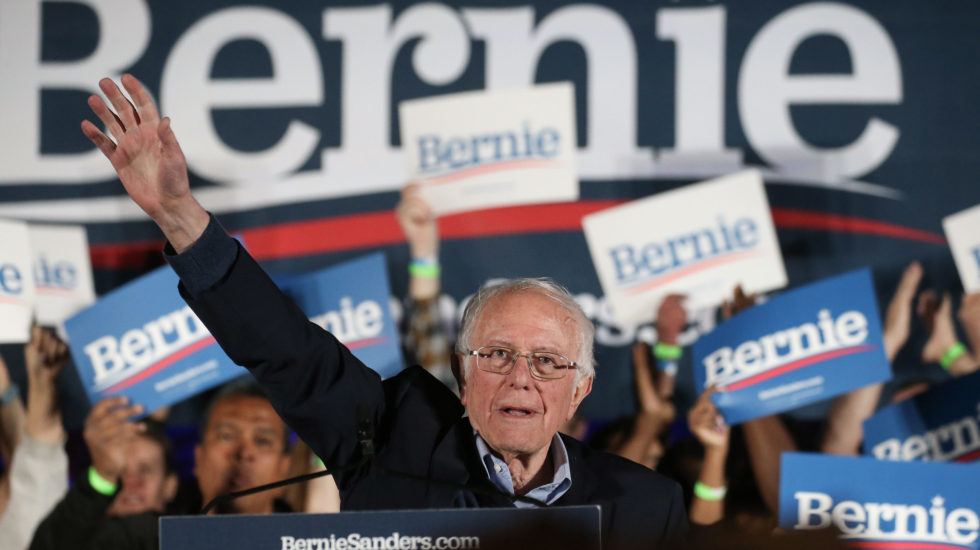Here’s the question of the day, and maybe the question of this politically divisive year:
Can Democrats who’ve resisted Bernie Sanders so far come to terms with the notion that he should lead the charge against Donald Trump in November?
Even in the wake of Sanders’ impressive win in Saturday’s Nevada caucuses, there is no single or easy answer.
“Lots of Democrats are in full panic that Bernie Sanders will win the nomination and get clobbered in the general election — and bring the party down, too,” writes Axios CEO Jim VandeHei. “But the evidence, particularly the polling, doesn’t back those doomsday warnings.”
Nearly all recent polls find that Sanders would beat Trump in key battleground states (Michigan, Pennsylvania) as well as nationally.
Democrats remember all too well that pollsters said pretty much the same thing in 2016, about Hillary Clinton — and yet there are signs that some are coming around.
“Instead of asking if Sanders is unelectable, ask another question: What if Sanders is actually the MOST electable Democrat?” asks Peter Hamby of Snapchat and Vanity Fair.
“In the age of Trump, hyper-partisanship, institutional distrust, and social media, Sanders could be examined as a candidate almost custom-built to go head-to-head with Trump this year,” Hamby writes.
At least one Congressional Republican, Rep. Tim Scott of South Carolina, apparently agrees.
Further complicating the situation, as the New York Times points out, is that the “anti-Sanders camp remains split” even as the race for the Democratic nomination enters a “critical” stretch, with the South Carolina Primary on Saturday, followed three days later by Super Tuesday.
“The biggest problem facing establishment Democrats is eerily similar to what happened to Republicans in 2016 as they plotted to take down [Donald Trump]: a splintered field with no signs of anyone dropping out in the near future, making it tough for the party to coalesce behind anyone in order to stop Sanders,” says The Hill.
The Democratic field may shrink after Super Tuesday, with some observers suggesting it could, or should, be the end of the line for Elizabeth Warren, Joe Biden, Amy Klobuchar, Pete Buttigieg and/or Tom Steyer.
On MSNBC’s Morning Joe Monday, host Joe Scarborough called on Warren and Klobuchar to get out to help “consolidate efforts” against Sanders, provoking comment on Twitter suggesting gender bias.
But it’s impossible to say if any of them would, as former candidate Andrew Yang puts it, “do the math” and drop out.
Sanders clearly aims to beat Biden — or at least dent the former vice president’s current lead — in South Carolina. And he has legitimate hopes of nailing down the nomination in the big-delegate states (California, Texas, North Carolina, Massachusetts) on Super Tuesday.
Yet another angle on all this, for Republicans, is: what happens if Sanders does win in November?
Some pundits think the GOP has set a trap for itself, with its lockstep support for Trump and disregard for Sanders’ chances against him.
“Not only have Republicans failed to put the country’s interests above their own and demonstrated a degree of moral cowardice that would horrify our Founding Fathers, they also have been excruciatingly short-sighted,” writes opinion columnist Jennifer Rubin in the Washington Post.
Rubin goes on to imagine how a President Sanders might follow the Trump playbook: appoint an attorney general “specifically tasked with prosecuting … every senior member of the Trump administration”; raid “half the defense budget to set up a single-payer health scare scheme”; even seek “help from the Kremlin for his reelection run in 2024.”
A vivid imagination on display there, certainly. But there’s been no shortage of hard-to-imagine twists and turns in the past four years.



